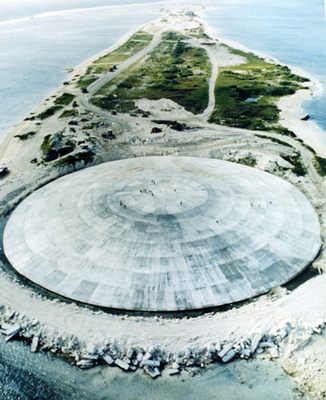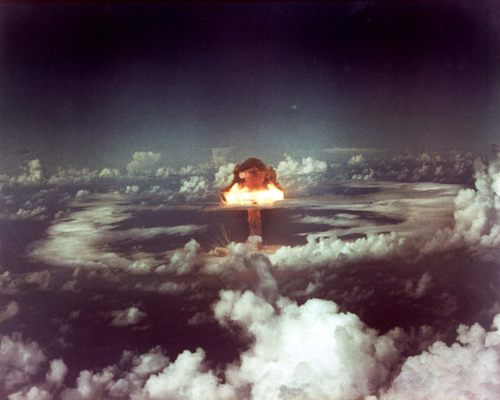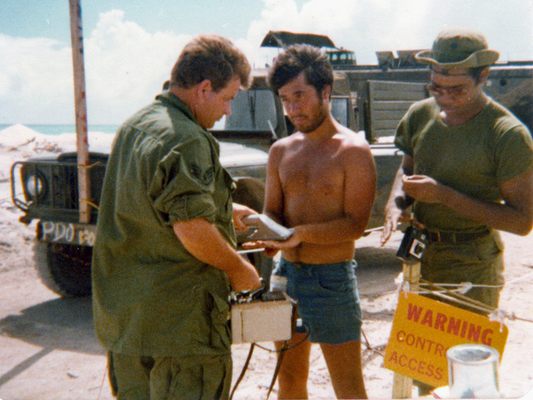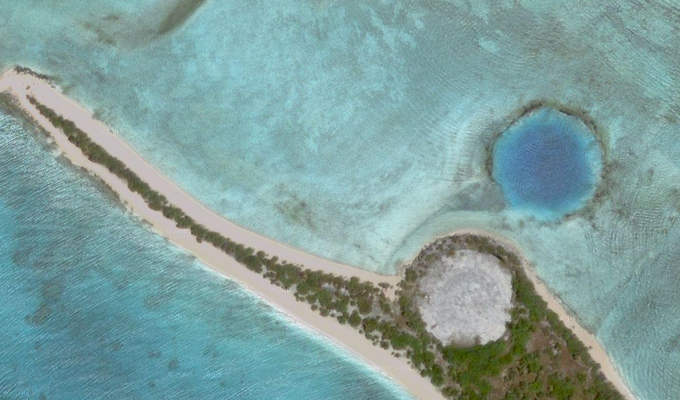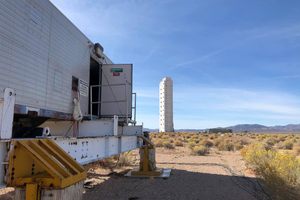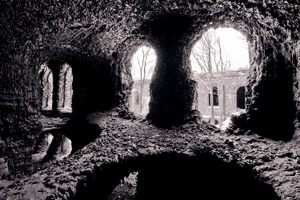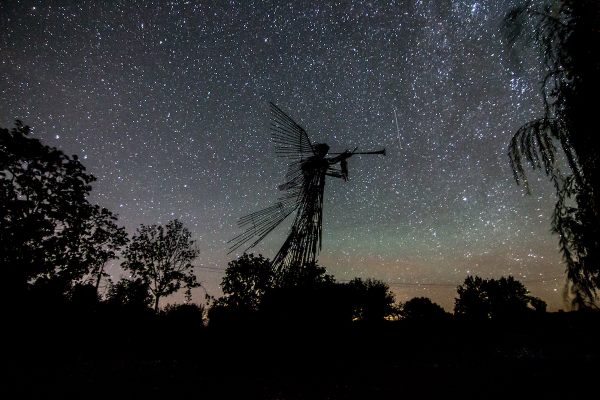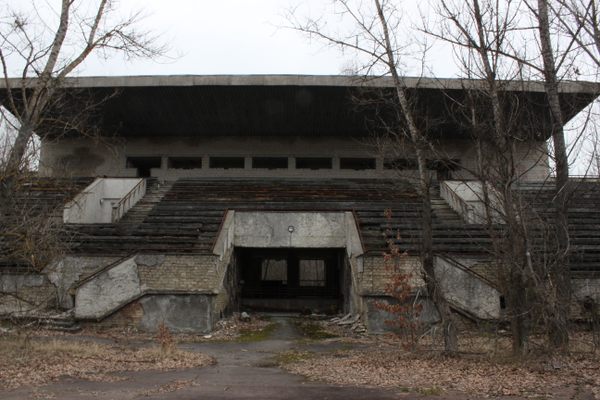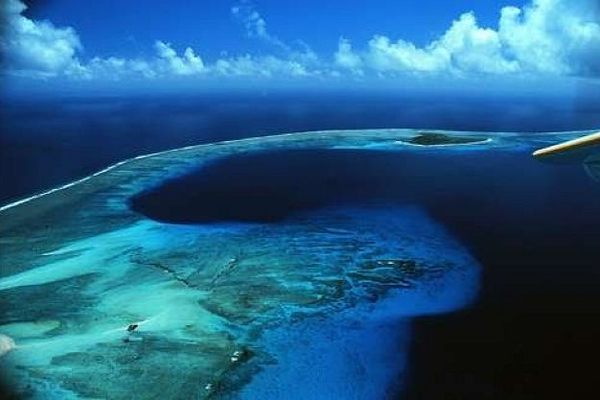About
Between 1946 and 1962, the U.S. military conducted 105 atmospheric nuclear tests over the "Pacific Proving Grounds," a euphemism for the Marshall Islands and several other nearby South Pacific atolls.
In the late 1970s, in an effort to clean up the radioactive debris left by those explosions, the government dug up 111,000 cubic yards of soil from the Bikini and Rongelap atolls and deposited it on Runit Island. Its resting place would be in a 350-foot wide crater that had been created two decades earlier by an 18-kiloton nuclear test code-named Cactus.
Covering up that giant radioactive pit cost the government nearly a quarter of a billion dollars and took three years to complete. The result: an enormous, foot-and-a-half-thick, 100,000-square-foot dome consisting of 358 gigantic concrete panels. Despite signs warning off visitors, it is still possible to make landfall on Runit and stomp across the Cactus Dome. It is recommended that you don't.
Related Tags
Community Contributors
Added By
Published
June 27, 2013
